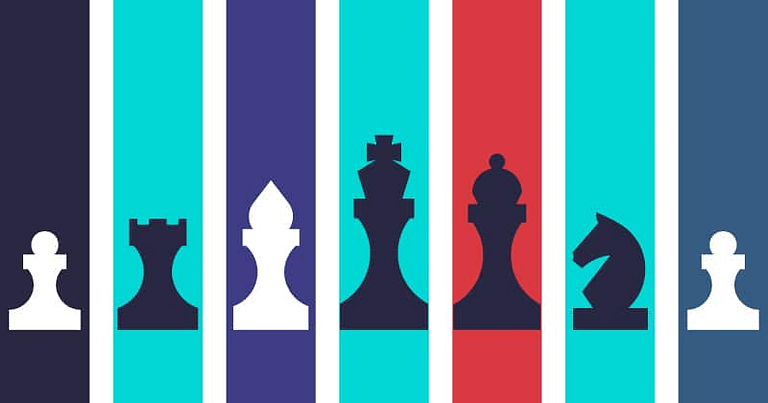I’m no longer an active chess player, but I remain a huge chess fan. For me, being a fan means following the top players and top competitions; knowing a significant amount about the top players’ life and interests; playing through their games and trying to understand them, and when time permits, I travel to see elite chess tournaments live or watch tournaments which are broadcast online, from home.
It was in my early youth that I discovered chess, and it took priority over everything else in my life. The endless depth of the game was mesmerizing and I enjoyed not only playing but also going over the old masters’ games. Chess move notation and the fact that almost all master level games of the last century were recorded, made reliving past masterpieces possible. However, I mostly enjoyed my own fierce over-the-board battles and, of course, loved the joy of winning. I have always been a terrible loser, so I tried my hardest to minimize these painful events. Preparing for chess tournaments was a labor of love, and it took a lot of discipline ‘off the board’ to make progress.
Although my competitive career in chess only lasted 5 years and stopped when I turned 17, I’ve come to realize that chess has had a profound impact on my professional career, first as a technology entrepreneur and then, subsequently, as a venture capital investor.
Contrary to the common belief that chess players’ ability to ‘think ahead’ and calculate variations is useful in life, personally I have found that this skill provides little value or relevance. The world, in fact, is hardly ever a place where calculating variations is of much use.
However, there are other principals you can learn as a chess player that are very useful when making decisions beyond the chess board.
Garry Kasparov, the greatest chess player of all time, wrote a book with his longtime collaborator Mig Greengard, with the alluring title “How Life Imitates Chess”. In it he describes how chess thinking and principles apply to life.
I’m going to borrow from that theme, and share what chess has given me in the form of guiding principles that are as important off the board, as much as they are important on the chess board.
Have a plan — hold long term goals.
In chess you always make an effort to have a plan. The plan is the method by which you try to achieve a certain goal. In life, as in chess, you should always have a plan. Your plan may and will change, just as circumstances do. At the very least, being aware that you are acting without a current plan, is the first step in trying to come up with a plan.
Assume you will make mistakes — factor this into your decision making process.
As painful as it is to lose, losses happen. In chess, they are almost always the result of mistakes in your thinking. Being aware that you can be wrong should never stop you from making decisions. However, taking the possibility of mistakes into account is important, because you’ll be more inclined to realize, sooner rather than later, you’ve made a mistake, and to act quickly and fix it to the extent that it’s still possible.
You learn the most from your mistakes — embrace them and learn from them.
The best way to improve in chess, and in business, is by objectively analyzing your losses. You’ve lost in chess because you thought wrong and you made a wrong decision. Despite having access to the same information as your opponent, something within your thinking was mistaken. You get better by revisiting your own thought process, and by asking yourself what made you decide to make that move at that point. Only by objectively going through the process that led you to a mistaken outcome, can you improve your own decision making process.
Don’t be dogmatic — embrace new data and be open to changing your mind quickly and often.
A chess player who only uses the same opening, who always aims for a specific type of positions, who has a hard time adapting and changing — will get crushed by competitors who figure him or her out. Reality changes all the time. We also keep getting more information, which reflects on past understanding and decisions. A plan that was correct may become irrelevant. Being quick to adapt to a changing situation, and being receptive to new data, is critical. There’s an investment axiom saying “strong opinions loosely held”. I appreciate people who can easily change their mind, based on any small piece of new information they obtain, instead of trying reshape reality to align with their prior conviction. Insisting on past conclusions while ignoring new relevant information is very dangerous, and leads to certain defeat.
Trust your intuition — the more you use it, the better weapon it becomes.
Good chess players “feel” what the right move is. They then spend time analyzing and calculating, to double-check their intuition. Intuition in chess is the byproduct of countless patterns observed, and over time strong chess players develop the courage to trust it. The same holds true in business and in life. The more you use your intuition, the more powerful it becomes. Often you can feel that a certain business direction makes more sense than another without having a good way to articulate this feeling into a polished logical argument. It’s important that you build the courage to trust this gut feeling; it’s a muscle that grows stronger the more it’s used.
Be selective — you can’t check all possible moves.
In a typical chess position, there are potentially dozens of candidate moves. A strong chess player will very selectively focus on 2–3 candidate moves, and hardly pay attention to the other options. The same holds true in business. There are many scenarios where many paths are possible, where many decisions can be evaluated. Being able to narrow down the list of possible actions, fearlessly rejecting some options without evaluating further, is the only way to take timely action.
Timely action — missed opportunities hurt most.
Missed opportunities seldom return. Taking action is not enough. Taking timely action is what is most important. In business often taking action at the right moment in time is the key to success. The same decision made too late, might as well be a wrong decision. More often than not, timely action also means acting fast.
Handle changing circumstances — control your emotions, focus on the present.
Psychology is super important in chess, especially when it comes to dealing with dramatic changes in circumstances. In Chess, you could be winning for 30 moves, only to ruin your chances in a single blunder. Your mind needs to adjust to dealing with the new situation at hand, and remain resilient, now focusing solely on trying to save the game. Being resilient means not wasting time over past mistakes or how you ended up in this predicament, while the fight is still taking place. The same holds true for business. Always focus on the situation at hand. There’s no value in spending time on missed opportunities while the fight is taking place. Nostalgia is for later.
Prepare — be as educated as you can.
In chess, you spend countless hours working on opening theory, endgame practice and tactical training. There’s a lot of creativity involved in preparing well, and the ability to work hard is a very important talent on its own, which is yet another great observation made by Garry Kasparov. In business the same holds true. You can, and should, always be prepared. Good preparation never goes to waste, even if not immediately used.
Understand your style — you can win with your own style.
One interesting trait in chess is that you can learn a lot about a player, simply by studying his or her games. You gain an insight into their personality and into their playing style. Chess players vary dramatically in style. Some are energetic attackers, others are world class defenders. Some like closed maneuvering games, others like open tactically fiery positions. The same holds true in business. You are who you are. Acknowledge your personality, and look for ways to take advantage of your personal strengths. Or in chess jargon, aim for positions that suit your style and character. You can be a charismatic speaker, or a thoughtful introvert. You can have an aggressive outgoing sales driven personality, or not. All styles can win.
Be objective — reality always wins.
Maintaining objectivity and an accurate sense of realism, is a mandatory starting point both in chess and in business. Reality always wins. If you fool yourself, reality will eventually (often, fairly quickly) catch up, and you’ll lose. A strong sense of objectivity is the basic must-have ingredient of all successful decision making.
Be curious and have fun — or else, why enter the game at all!
Having fun, being curious, constantly trying to learn and improve, should be the cornerstone of any endeavor.





